 Petzlover
Petzlover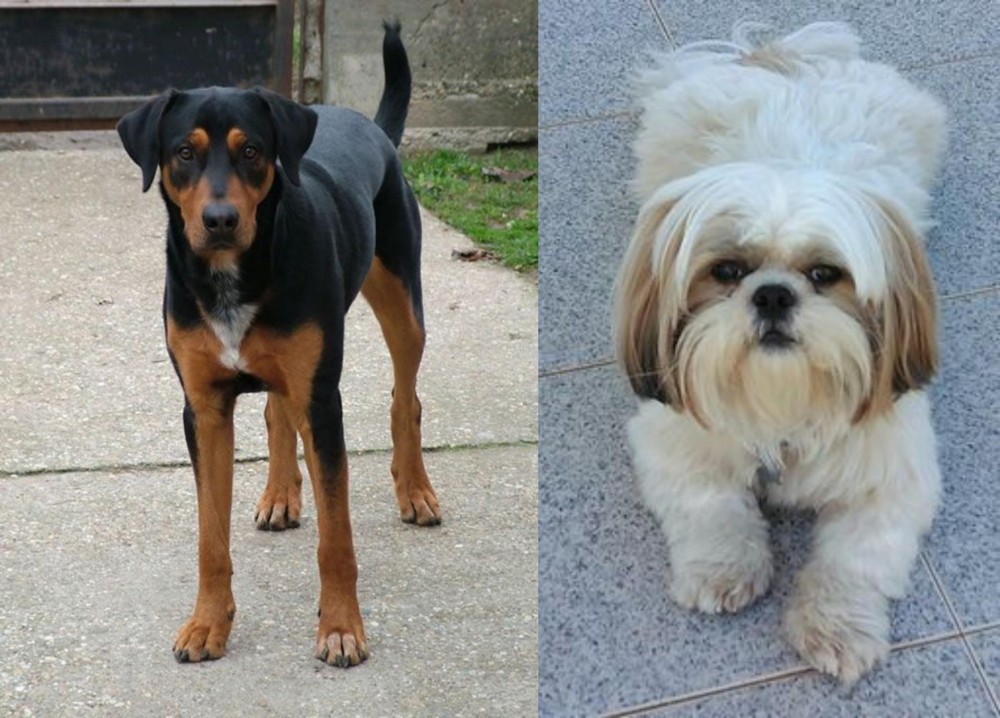 Hungarian Hound is originated from Hungary but Shih Tzu is originated from China. Hungarian Hound may grow 37 cm / 15 inches higher than Shih Tzu. Hungarian Hound may weigh 20 kg / 45 pounds more than Shih Tzu. Hungarian Hound may live 6 years less than Shih Tzu. Both Hungarian Hound and Shih Tzu has same litter size. Hungarian Hound requires Low Maintenance. But Shih Tzu requires High Maintenance
Hungarian Hound is originated from Hungary but Shih Tzu is originated from China. Hungarian Hound may grow 37 cm / 15 inches higher than Shih Tzu. Hungarian Hound may weigh 20 kg / 45 pounds more than Shih Tzu. Hungarian Hound may live 6 years less than Shih Tzu. Both Hungarian Hound and Shih Tzu has same litter size. Hungarian Hound requires Low Maintenance. But Shih Tzu requires High Maintenance
 The Hungarian Hound, also known as the Transylvanian Hound, originated in ancient Hungary as a hunting dog. At the time there were Asian Hounds that traveled with Hungarian Magyar tribes into Transylvania. As early as the 9th century it is believed that these Hungarian dogs were crossed with Celtic Hounds and local dogs. The result is the Hungarian Hound. These dogs were incredibly popular throughout Transylvania.
The Hungarian Hound, also known as the Transylvanian Hound, originated in ancient Hungary as a hunting dog. At the time there were Asian Hounds that traveled with Hungarian Magyar tribes into Transylvania. As early as the 9th century it is believed that these Hungarian dogs were crossed with Celtic Hounds and local dogs. The result is the Hungarian Hound. These dogs were incredibly popular throughout Transylvania.
This scent hound almost became extinct but was saved by intense breeding during the latter part of the 21st century. They developed two kinds, short and tall, for different types of hunting. The tall dogs hunted boar, bison, lynx and bear. The short dogs hunted hare, fox and chamois.
Only the tall dogs exist today. Some Hungarians raided parts of Europe and took the dogs with them. There was then a crossing breeding with Polish dogs. The tall dogs exist today in Hungary and Romania. The Hungarian Kennel Club recognized the breed and the United Kennel Club (UKC) from the United States recognizes them. No major clubs such as the AKC (American Kennel Club) or the British Clubs. The breed was accepted into the AKC Foundation Stock Service Program
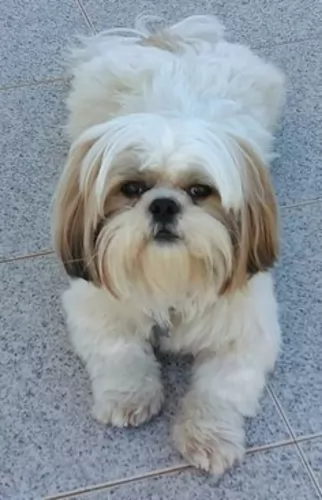 The Shih Tzu is an Imperial Chinese breed developed by palace breeders hundreds of years ago with breed stock from the Tibetan lines. It is quite probable that the Shih Tzu was originally a cross between two Sino-Tibetan ancient dogs – the Pekingese and the Lhasa Apso. Based on their looks, the Shih Tzu means the lion dog, but they were really very pampered palace dogs living with the Chinese emperors and families. The emperors were always gifting the breeders who developed the most affectionate, gentle and beautiful Shih Tzus.
The Shih Tzu is an Imperial Chinese breed developed by palace breeders hundreds of years ago with breed stock from the Tibetan lines. It is quite probable that the Shih Tzu was originally a cross between two Sino-Tibetan ancient dogs – the Pekingese and the Lhasa Apso. Based on their looks, the Shih Tzu means the lion dog, but they were really very pampered palace dogs living with the Chinese emperors and families. The emperors were always gifting the breeders who developed the most affectionate, gentle and beautiful Shih Tzus.
Until the 1930’s the Shih Tzu was not known to the world outside the emperor’s palace. Once the breed did come out from behind the palace walls, they were immediately popular. Much debate went on about how to refine the breed as clubs began to spring up in Peking and then in England. It was not until 1969 the Shih Tzu was recognized and entered in the AKC Stud Book.
While the original Shih Tzu might have been a mix between the Pekingese and the Lhasa Apso, today’s breed spread around the world after the second world war. In Europe in the 1930’s the breed was classified as Apsos. In 1935 the first Shih Tzu Club of Europe was formed, and the first standard was written, and the breed was categorized as the Shih Tzu.
Following World War II, soldiers brought the dogs to the States from Europe. By the 1950’s the breed was growing in popularity and the AKC recognized the breed in 1969 as members of the Toy Group. They are now recognized by all major kennel clubs throughout the western world. They are recognized by the Federation Cynoloqique Internationale in the Companion and Toy Group, among Tibetan breeds.
The Shih Tzu is a good watchdog, but it was bred to be a companion animal. It is a friendly, open breed that welcomes strangers. They are great with other animals and children as well as adults.
 The Hungarian Hound is a medium sized dog, a scent hound with the same characteristics of the type of hunting hounds found in Mid-Europe. The breed is a hardy one with a long head slightly domed skull. The muzzle is short, and the jaws are strong. The lips are black, and the ears are round and hang. Their eyes are shaped like almonds and dark brown. The breed has large paws with cushioned pads and strong toes.
The Hungarian Hound is a medium sized dog, a scent hound with the same characteristics of the type of hunting hounds found in Mid-Europe. The breed is a hardy one with a long head slightly domed skull. The muzzle is short, and the jaws are strong. The lips are black, and the ears are round and hang. Their eyes are shaped like almonds and dark brown. The breed has large paws with cushioned pads and strong toes.
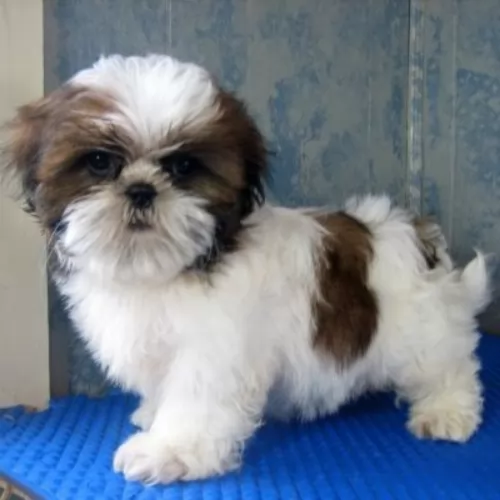 This is a breed of lively, sturdy and alert little dogs with a beautiful double coat that is flowing and long. In its full glory the Shih Tzu coat is touching the floor all the way around the dog. The dog’s bearing is as royal as its history, arrogantly carrying his head high and his tail curving over his back.
This is a breed of lively, sturdy and alert little dogs with a beautiful double coat that is flowing and long. In its full glory the Shih Tzu coat is touching the floor all the way around the dog. The dog’s bearing is as royal as its history, arrogantly carrying his head high and his tail curving over his back.
The Shih Tzu is a solid, compact breed with weight and substance. They may be a small dog, but they are a strong one. They have large dark eyes with a short muzzle and fur covered drop ears. They are just a little longer than they are tall with a distinct underbite.
There are a few differences between the European or UK Kennel Club standard and the American Kennel Club AKC standard. As opposed to the UK standard the AKC standard states that:
• The hindquarters are muscular while the front are straight. They are balanced in that they are not too long or too short.
 Children friendliness – This breed is very friendly with children.
Children friendliness – This breed is very friendly with children.
Special talents - Hunting independently and at a distance from the hunter.
Adaptability – Not an apartment dog. They need space and land.
Learning ability – They are very independent and intelligent.
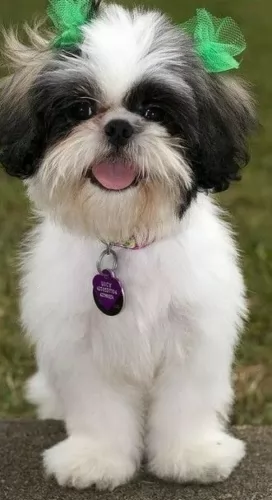 2.Special talents – they were bred to be companion animals. They are friendly and loyal.
2.Special talents – they were bred to be companion animals. They are friendly and loyal.
3.Adaptability Yes very much so. They can live in an apartment or on a farm. It doesn’t matter and they don’t need a yard.
 Even though this is an ancient breed they do face certain medical issues such as:
Even though this is an ancient breed they do face certain medical issues such as:
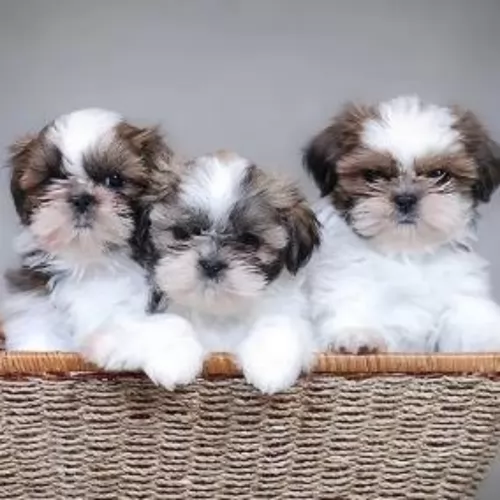 For many breeds that have the advantage of isolation like the Shih Tzu did with the emperors of China usually have very little genetic health issues. Most of the breed is indeed healthy but there are some issues.
For many breeds that have the advantage of isolation like the Shih Tzu did with the emperors of China usually have very little genetic health issues. Most of the breed is indeed healthy but there are some issues.
• Brachycephalic airway obstructive syndrome due to the shape of their face and head causes them to have breathing issues. They cannot handle heat and they cannot swim. They can have an upper airway obstruction that makes it hard for them to breath. If this is bad enough, surgery may be required.
• Hypothyroidism – thyroid does not produce the hormones necessary for metabolism to work effectively. This can lead to weight gain, hair loss, lethargy and muscle loss. It can be treated effectively.
• Issues of the eyes include – cataracts, corneal dryness and inflammation, progressive retinal atrophy, improperly closing eyelids and retinal detachment.
 Feeding the puppy – 1-3 cups of high quality food served in 3-5 meals per day.
Feeding the puppy – 1-3 cups of high quality food served in 3-5 meals per day.
Feeding the adult – 3-5 cups of high quality food served in 2-3 meals a day.
Points for Good Health – generally healthy
Games and Exercises – The Hungarian Hound is a hunting dog and therefore accustomed to and bred for a high level of exercise. Their instinct for hunting is really strong so make sure you do not let them off leash outside of a contained area. They excel at tracking, field trials, lure chasing, and fly ball.
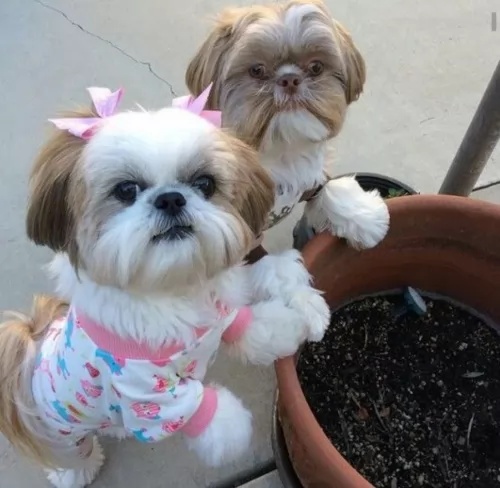 1.Feeding the puppy – this is a toy dog so don’t overfeed. They have a tendency to become obese. Calorie and weight level need to be calculated with any diet you feed. The diet should be high quality with plenty of protein made for toy dogs. Feed the puppy at least 3 times a day, maybe four in very small amounts, never more than ½ cup per day.
1.Feeding the puppy – this is a toy dog so don’t overfeed. They have a tendency to become obese. Calorie and weight level need to be calculated with any diet you feed. The diet should be high quality with plenty of protein made for toy dogs. Feed the puppy at least 3 times a day, maybe four in very small amounts, never more than ½ cup per day.
2.Feeding the adult - this is a toy dog so don’t overfeed. They have a tendency to become obese. Calorie and weight level need to be calculated with any diet you feed. The diet should be high quality with plenty of protein made for toy dogs. Feed the adult once or twice a day in larger amounts than the puppy but never more than ¾ of a cup per day.
3.Points for Good Health - most Shih Tzu’s are hardy with exceptionally good health.
This is a pampered, not high energy dog. However, she still needs playtime, which can be indoors and short walks outdoors every day.